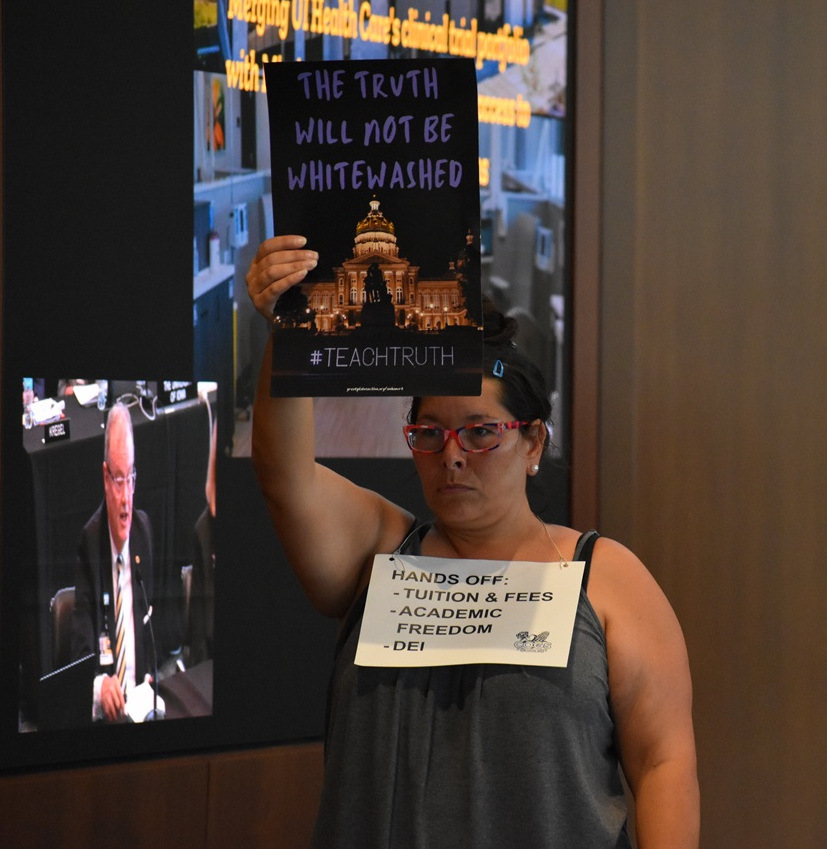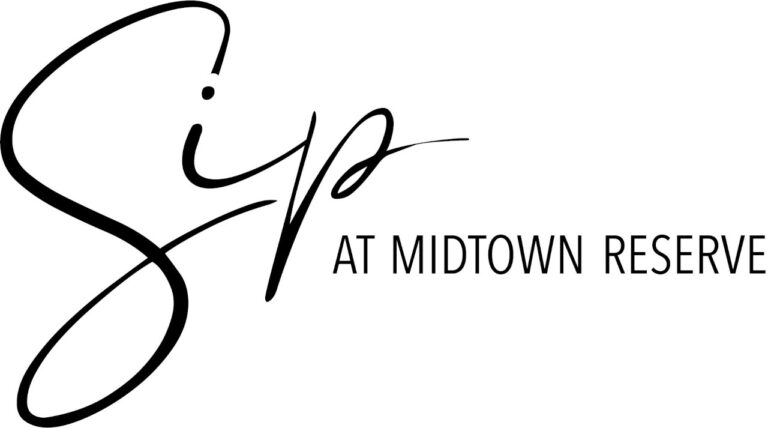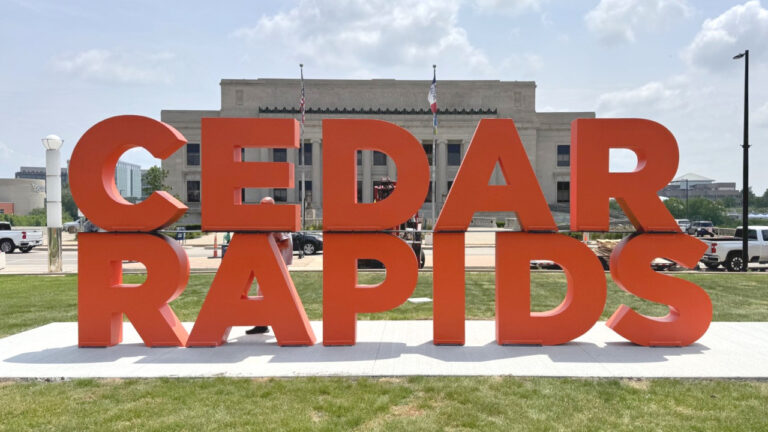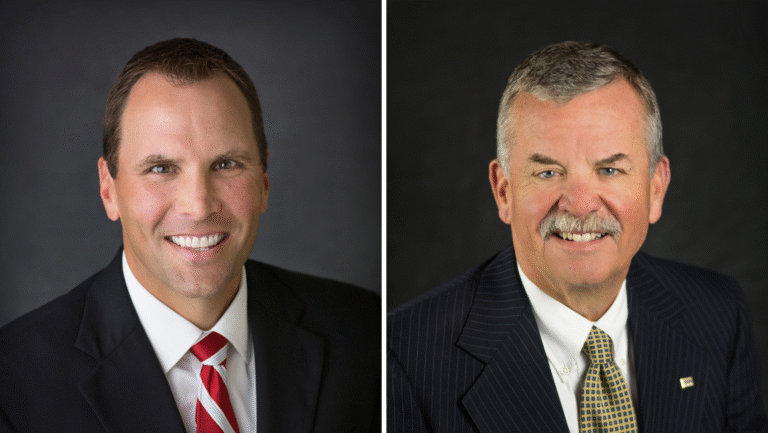Regents pause decision on controversial policy allowing students to opt out of DEI, CRT coursework

A protestor holds a sign depicting the Iowa Capitol accompanied by the words "The truth will not be whitewashed" at the Iowa Board of Regents meeting Wednesday, June 11. CREDIT ANNIE SMITH BARKALOW
The Iowa Board of Regents are revisiting a policy that would excuse students from taking required courses that have “substantial” diversity, equity and inclusion or critical race theory content.
The Regents’ June 11 meeting was the first of two readings for the proposed policy change, which would allow certain exceptions contingent on board approval.
Board documents defined DEI content as instruction that conveys…

Want to Read More?
Get immediate, unlimited access to all subscriber content and much more.
Learn more in our subscriber FAQ.
Do you want to read and share this article without a paywall?








